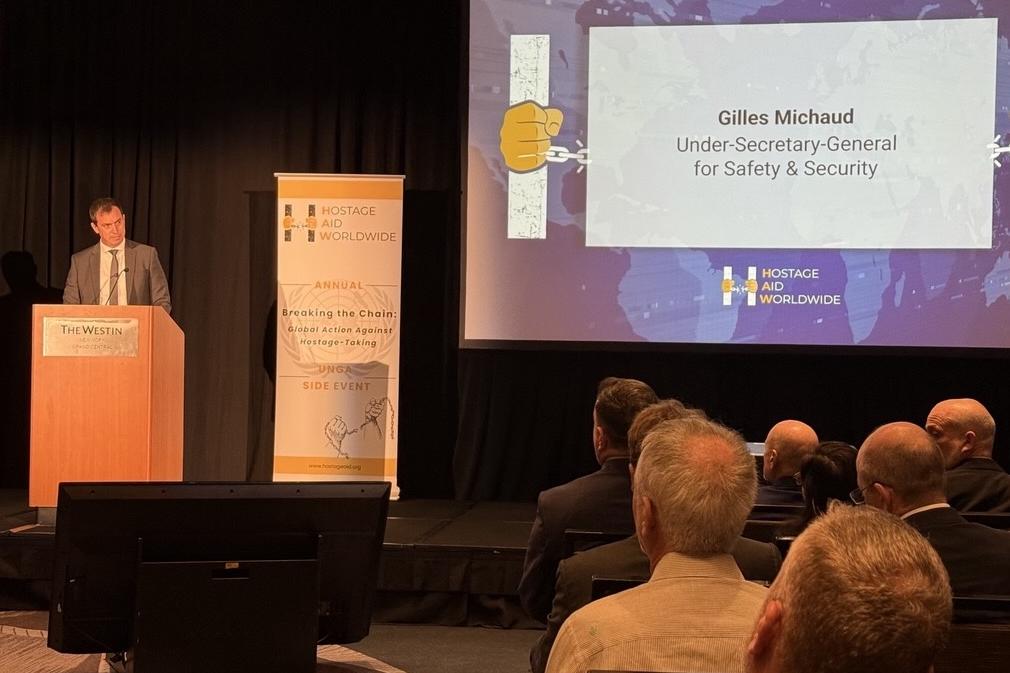In Indonesia, issues such as intimate partner violence, early marriage, and limited representation of women in leadership continue to impact gender equality. Nearly 9% of women aged 15–49 have reported experiencing physical or sexual violence from a partner in the past year, and only 22% of parliamentary seats are held by women.
Indonesia also performs below the regional average in Asia on gender-related Sustainable Development Goal (SDG) indicators, with just 5.7% classified as high-performing compared to 13.5% across the region. Two-thirds of gender-specific indicators remain unreported, highlighting significant gaps in available data.
Office support staff are often the first to arrive, the last to leave and the first face many people see when entering a UN office. With this in mind, UNDSS Indonesia and the UN Resident Coordinator’s Office (UNRCO) held two PSEA (Prevention of Sexual Exploitation and Abuse) refresher trainings on 17 and 20 March 2025. 77 drivers, guards, and office assistants from 30 UN agencies joined the sessions, delivered in Bahasa Indonesia to make the content accessible and relevant. “These sessions are about inclusion,” said Mr. Ali Aulia Ramly, PSEA Coordinator and lead facilitator. “We designed the material around the actual experiences and challenges of support staff—what they see, hear, and deal with.”
Ms. Tri Lestari, UNDSS Field Security Associate and Gender Focal Point, co-facilitated the sessions and supported group discussion on recognizing, preventing, and reporting sexual exploitation and abuse. “This was my first time joining a PSEA training,” said Abdul Jabar, an Office Assistant. “It opened my eyes to behaviours and words that could be considered harassment. It reminds me to always be respectful and mindful.”
Ana Lestari, a UN Security Guard, added: “I’m grateful for this training. It helps me recognize and respond to potential risks of harassment and violence in my role.”
Training Office Support Staff on PSEA: UNDSS Indonesia Reaches 77 Frontline Workers
- 22 April 2025

Mr. Ali Aulia Ramly, PSEA Coordinator and lead facilitator.
UNDSS




